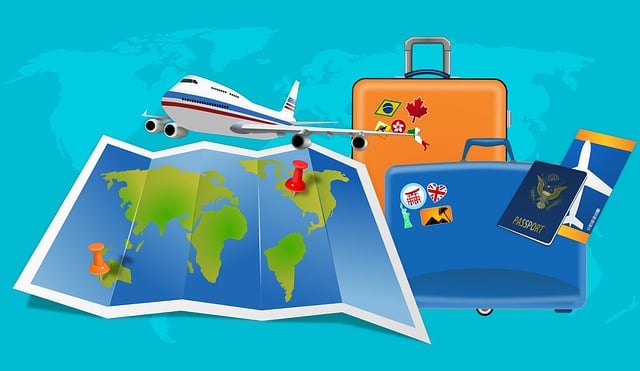Rapid Translate Team
Localization is the total transformation of content, mostly on websites, to cater to people from specific regions. You may wonder how and why, leading you to ask again, what is localization? Well, it’s a way of focusing product content on multiple groups of people. Localization specifically tailors products to suit each group.
It personalizes content beyond language as it involves other considerations. It’s an excellent way for global businesses to expand their reach. The art of localization ensures that manufacturers and consumers have peaceful trade relations.
So, if you want to grow an international business, read this article!

Table of Contents
Localization Meaning and Purpose in Brand Building
People often ask, what does localized mean? Localization meaning is a total modification or alteration of content to fit a particular set of people for a purpose. Its primary purpose is to present products enticingly to people of different cultures.
Localization enhances user experience (UX) by improving content representation and addressing cultural biases. It could also lead to consumer loyalty and customer retention in the long run.
Localization also presents goods and services in a manner that appeals to different cultures, enhancing sales and reach. It enables brands to circulate their products and penetrate unsaturated markets. The art of content conversion also wins clients’ trust and builds a brand’s reputation, as it shows respect for traditions.
Rather than imposing a culture on another or modernizing cultures, it respects the status quo, promoting peaceful trade relations. It also gives an edge over competitors who fail to tailor and internalize their services to consumers in different locations.
Of course, most people would choose a product marketed conventionally as it’ll trigger a sense of nostalgia. So, it’s an excellent way to market products to foreigners in the diaspora. It’s also integral to sales as it helps customers to navigate e-commerce websites easily.
Regardless of a website’s native language, customers can find the right products and make purchases through their local currency. So, rather than getting a business translation, consider opting for localization.

What Is the Localization Process?
The localization process refers to the steps and actions applied when refurbishing web content to fit groups of people. It involves effort from the coding stage, requiring a dedicated team to work together to ensure success.
Internalization is the first step to providing an equal product experience across regions. It involves writing your website’s programming codes to facilitate different language and design formats.
So, programmers must write codes integrating multiple languages, formats, and elements. The codes should also allow for writing differences. For example, some language text goes left to right, right to left, and even vertically.
Localization also considers the various numerical systems, names, and locations. Furthermore, localization involves legalities. Like in legal translation, localization procedures must comply with the region’s legal system.
You can implement the translation of your web content while maintaining your brand voice and passing on the same message. However, you must avoid crossing any cultural boundaries so as not to offend the natives of the target region.
Also, try to maintain the tone of your message in the target language translation. Additionally, convert images and signs using appropriate color schemes. Depending on the target region, your user interface designs may be complex or minimalistic.
The localization process also accounts for differences in size charts, units, dates, time, and other formats. However, the process will be incomplete without accurate price conversions.
So, you must also offer relatable payment options and currencies to your target audience. To build an online presence for a global brand catering to varying tastes, one must observe all stages of localization.

Translation vs Localization: Their Differences
Do not assume that translation and localization are synonymous. Translation is one process for localizing content, so the former is a sub-aspect of the latter. Foreign language translation deals with rendering text from one language to another.
However, when done by a professional, it goes deeper than grammatical correctness to involve target language nuances and technical complexities. Translation can satisfy some needs, but you need localization to expose your brand and capture international markets.
For example, to sell an American product in an Asian market, you must develop strategies that appeal to Asian culture. That’s why, beyond translating text, localization changes imagery, approach, time, color, and style. Simply put, it’s like a product revamp.
Translators rewrite words to promote better understanding and flow of communication when translating. However, localization redesigns everything, including the website’s layout, images, pricing information, and time and date formats from scratch.
In all these changes, localization never loses sight of a nation’s culture. Therefore, the people performing this act ensure that the changes comply with their target market’s traditions, cultural expectations, and practices.
For example, the okay hand sign used to indicate a state of normalcy is offensive in Brazil.
To Brazilians, the okay sign is just as rude as the middle finger. So, imagine your brand visuals or product page has this logo. You’ll have to tweak it to something more culturally appropriate.
Though such changes are unnecessary when translating, localization considers everything to ensure your product makes an impression on the target. So, in the translation vs. localization comparison, the latter is more significant and has several variants.

Types of Localization Translation
Localization is broad and involves several aspects. Hence, breaking it down creates awareness and sensitizes people on the type of localization translation services they require. So, let’s discover localization definitions in the various available categories.

1. Product Content Localization
Product content localization definition is the customization of text, logos, colors, and formats in content marketing. Hence, it personalizes product material such as leaflets, flyers, packages, and drug labels.
Such product content is descriptive and detailed, making it exceptional for marketing. But if its presentation isn’t familiar or appealing, potential customers from countries other than the manufacturing nation may lose interest.
Your content should satisfy these preferential differences in background and culture. You might need to edit or recreate it to market it correctly.
2. Web Localization
Most businesses have comprehensive websites that contain information about the brand and its products. On a website, you can learn about the business, find its physical address, browse catalogs, and place an order.
Since websites are a large part of e-commerce and international marketing, people localize them. Using GPS technology to detect location, you can program your site to respond with the appropriate content for each user.
However, most developers prefer to create a menu box where viewers can indicate their location. The display for each location differs as web localization ensures the customization of web content to suit diverse audiences.
3. Social Media Localization
Most brands have active communities of online enthusiasts. For communities to thrive, brands must optimize their social media pages for different audiences. One can do this by creating social media communities with subregional groups and getting native handlers for each group.
In this regard, hiring human handlers is better than employing Artificial Intelligence tools. Chatbots lack emotional intelligence and may not appropriately handle customers’ complaints and concerns.
However, the handler can understand your brand voice and values to maintain the existing standard. With this, you can be sure of perfect post management and creation. Your handlers will also be able to engage people from different regions in manners that generate excitement for your services.

Do I Need Localization Services?
Business owners seeking to expand their online presence internationally to increase cash inflow need localization services. Anyone with a product meant for a large target market with an audience of diverse backgrounds will benefit from localization. However, localization isn’t for you if you do not fit this category.
Localization plays a role in globalization through translation and internalization. Applying all these procedures creates visibility and expands revenue streams. That’s because it endears native populations to foreign brand products.
The majority of people prefer to read content that has their native diction. For example, the word “Hola” instead of “Hello” is more likely to elicit smiles from a Spaniard. Such content substitutes unfamiliarity with familiarity.
Many big brands have tried this and gotten splendid results. For example, the popular streaming service Netflix customized its website and app to fit the expectations of different people.
This act prevents customer alienation by catering to consumers’ tastes by providing subtitles in various languages. The platform even selects movie suggestions for each user based on their language. They give out authentically local services, and the platform enjoys mass patronage.
Now you know what is localization and its benefits. If you envision building a brand that resonates with a global audience, you must localize your services. However, choosing the perfect localization service is crucial to your success.
You need an experienced service provider like Rapid Translate to navigate localization processes skillfully. Rapid Translate is an agency with expertise in translating and localizing content.
We offer professional website, marketing, and document localization in over 60 languages. So, contact us to create a homely feel and local appeal for your target audiences today!





